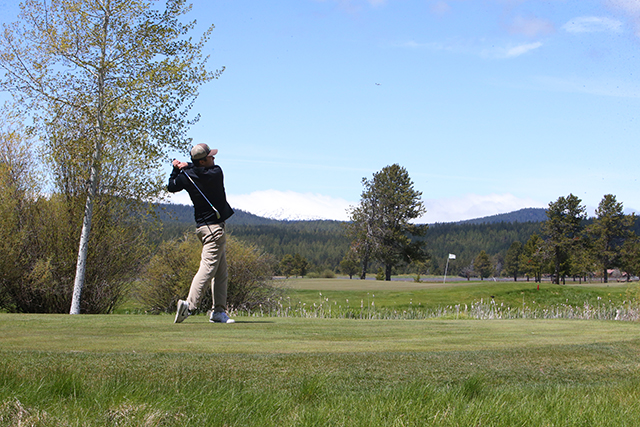Shows often delayed by real-life violence
Published 12:00 am Sunday, November 13, 2016
In the opening scene of the USA drama “Shooter,” the barrel of a sniper’s rifle is pointed right at the viewer.
“A bullet will kill you three ways,” says the disembodied voice of Ryan Phillippe, the star of the show, after a gunshot roars.
That episode was set to debut in mid-July, a few weeks removed from the Orlando, Florida, mass massacre. It would not happen. After a sniper killed five police officers in Dallas, days before the premiere, USA postponed it by a week. Then, after shootings in Baton Rouge, Louisiana, left three officers dead, USA decided to delay it by months.
On Tuesday, “Shooter” will finally have its premiere, but the delays were nothing rare.
After tragedies like the Paris terror attacks and the fatal shooting of a Virginia news reporter and her cameraman, shows like TNT’s “The Last Ship” or USA’s “Mr. Robot” have suspended episodes, worried that plots too closely reflected real life.
This is not without precedent, even if TV executives say it’s becoming more frequent: Going back to “24” (9/11), “Buffy the Vampire Slayer” (Columbine) and “Hannibal” (the Boston Marathon bombings), networks have backed off from airing potentially controversial new episodes in the wake of violence. (In the case of “24,” there was some editing; the episode of “Hannibal” was shelved from airing on NBC, though it was put online.)
But how is such a decision reached? And when they choose to postpone an episode of a show, are network executives acting too paternalistically to protect a viewership it deems can’t possibly be confronted with sensitive material?
Among television executives and producers, there is far from consensus on the issue. “There’s not a playbook, because it wasn’t a factor 20 years ago, 10 years ago or even five years ago,” said Mark Gordon, a producer of dramas including “Designated Survivor” and “Grey’s Anatomy.”
As the industry has gotten bigger — more than 420 shows will be broadcast this year — and more competitive, the willingness to tackle controversial topics has only increased. Add the real-life specter of shooting sprees, terror and racial unrest, and it has forced TV into unfamiliar terrain.
For USA, the debut episode of “Shooter” may have had one red flag too many. The show is based on the 2007 movie of the same name and centers on an ex-Marine sniper, Bob Lee Swagger (Phillippe), who is wrongly accused of trying to assassinate the president. Though the series has the feel of a thriller in the mold of “The Fugitive” or the Jason Bourne movies, the pilot episode features numerous re-enactments of the fictional president being shot in the head.
Still, USA didn’t want to edit it at all, and broadcasting it over the summer wouldn’t have demonstrated a sensitivity to events, said Chris McCumber, the president for NBC Universal’s entertainment cable channels. “In this case, you had the horrible tragedy of Orlando; you had the Dallas shooting, where the word sniper was being thrown around; you had Baton Rouge. It was one thing on top of another,” he said. “We wanted to get it out of that climate.”
But even that was no easy task: On the morning that McCumber was speaking, two police officers were ambushed and killed in Iowa.
Although there’s no one-size-fits-all protocol to dealing with such events, in general procedurals are easier to suspend than serialized shows. (Procedurals, like “Law & Order,” feature stand-alone episodes that aren’t affected by what happened before or after, allowing networks to easily switch up the order; serialized shows like “Scandal” depend on a narrative flow from one episode to the next). And broadcast and cable networks tend to delay an episode more quickly than a premium cable channel.
“Our responsibility is heightened in that we operate as a public trust,” said Kelly Kahl, senior executive vice president for prime time at CBS.
In addition to putting off terror-themed episodes of “Supergirl” and “NCIS: Los Angeles” after the Paris attacks last year, Kahl also mentioned that CBS made the difficult decision of delaying a 2013 tornado-themed season finale of “Mike & Molly” after a fatal tornado in Oklahoma.
When tragedy strikes and any of the network’s coming programming resembles what’s in the news, a group of people from programming, standards and practices, scheduling and public relations will convene to decide how to adjust. “We have a very broad constituency of people we need to be thinking about when we’re making these decisions,” Kahl said, including affiliates, the audience and advertisers.
But David Nevins, the chief executive of Showtime, said he had “really tried hard not to” delay an episode.
Last year, as “Homeland” was in the midst of a fifth-season plotline about a budding terror attack in Berlin, terrorists struck in Paris. With two days before broadcast, he said, the debate centered on whether an advisory “should come at the beginning or the end” of the episode. Nevins, who is not beholden to anxious advertisers, was firm on not postponing the episode. “Part of our brand positioning is as a safe haven for artistic creators to take chances,” he said.
Likewise, at a news media event over the summer promoting his new ABC show, “Designated Survivor,” in which the Capitol explodes during the State of the Union address in the first episode, Kiefer Sutherland said “television has a responsibility to confront what is actually happening in the world.”






